
Things you shouldn’t do while developing a positive work culture
Positive work culture

Things you shouldn’t do while developing a positive work culture. Methods to create a positive work culture in the workplace.
As a leader, you must focus on building the company culture that you and your team can be proud of. However, several mistakes will send your culture backwards without care to avoid them.
People tend to forget the fact that building your company culture is all about creating a culture that both you and your team are proud of. That helps create more positive cohesion, which enables your business to grow.
Positive company culture is not about having ping pong tables, free Friday beers or other workplace perks. Great culture results in a group of engaged human minds who are keen to come to work. They should understand what the company mission and values are.
So, without further, let us explore a few common mistakes people make when designing a company culture. We also share some advice on how to avoid these happening.
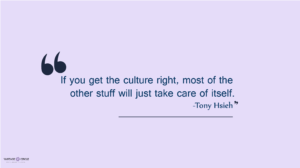
Common mistakes people make when designing a company culture
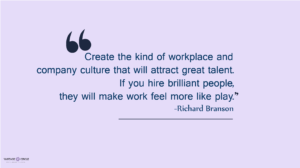
- Never build your company culture without proper planning
One of the mistakes found the most is that people just dive into ‘let’s create a great culture’ mode without proper planning. You should have a close look at the culture you currently have. Then, recognise the areas of improvement. You need to decide in which direction your business should run for the next 1-3 years. Then, revisit your mission and vision statements.
If you don’t plan for these sorts of activities, you are setting yourself up not to get the results you are awaiting.
- Lack of communication
Another mistake to avoid is not communicating your culture plans with your team. Ensure your team, including middle or senior management, know what your culture strategy is. Inform them what part they are expected to play in reshaping the cultural change.
Your people aren’t telepathic. They need you to communicate what your plans are, and where you feel the current culture is letting down yourself and the team. Being aware of such issues is the first step toward resolving them; you need to share this with others to work for it.
- Focusing on the negative
As a leader, you have to play a huge part in setting the tone of the firm. Be careful of your mood and what type of energy you are spreading to your team members. If you believe there are any negative element in the current culture, walking around moaning about it won’t help resolve this.
If you want to be a friendly person who carries positive energy to the office, start with proactive ideas on fixing the problems, instead of complaining or spreading negativity.
Work to banish negativity in your firm before it starts spreading.
- Making poor hiring decisions
Speaking of your team, building a positive company culture will never happen with poor hiring choices. There is an old adage that says ‘Hire slow, fire fast’. If you have employees who are spreading negativity or constantly undermining their managers, it may be time to let them go.
During your recruiting process, you may feel you have found a brilliant candidate with the right skill set to move your firm forward. However, you should also analyse these candidates for cultural fit.
If you had to choose a candidate for his technical skills, remember that you can train anyone for skills. The same will not go for training someone to change their personality or characteristics.
- Lack of goal setting
Goals are a vital part of building a company culture that you can be proud of. Goals motivate all of us to get focused and work toward shared results.
However, you should learn how to prioritise your goals properly. It is an essential skill that will help you and your firm succeed in the race. Remember that great leaders balance short-term thinking with long- term planning and thinking.
- Overlooking social needs
Another common mistake to avoid is not being concerned about the teams’ social needs. Great leaders encourage friendships at the office as it helps to create a family-style culture.
Employees do not want just to leave – they want a meaningful work experience that includes them being actively involved. So try to pick a few useful employee engagement ideas that would work for your team members, and run with them.
- Having no defined company values
A common happening with people is that they have no written values or mission statement, which is a way to express what behaviour and values are not acceptable in the office. Ensure that you and your colleagues also display these qualities that are shown in the values.
- Don’t be so serious
Every person loves a little fun in their lives. So, never forget to enjoy some laughter and smiles in the office. You are greeted with a smiling face often. Or you heed well wishes of “Good morning!” getting exchanged by your colleagues at the corner of the office.
Does this happen in your workspace? Ensure to be approachable by your team members, and encourage a little laughter here and there.
- Building your company culture is not once-off
Finally, the last and the least mistake are all too common. Some employers have the wrong idea of culture as being a checklist item that you can change, tick off and forget.
That is far from reality. Positive company culture needs frequent tending and direction. You should regularly evaluate how things are going, and what areas you should focus on more for the next quarter, six months or year.
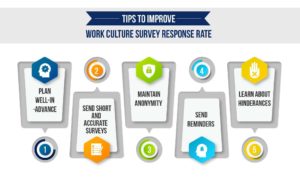
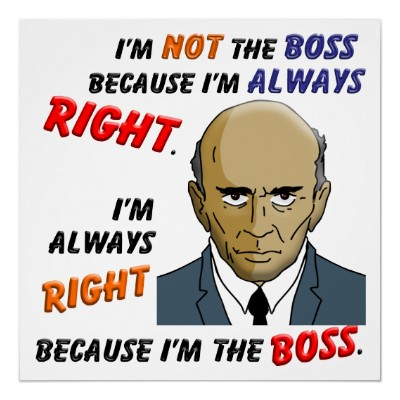
What is the best way to correct your boss, politely?
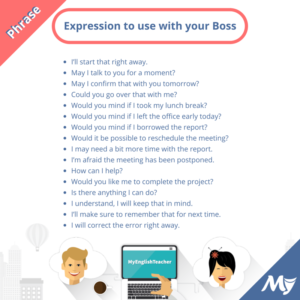
What is the best way to correct your Boss politely? The Boss can be wrong at some times. Best methods to correct your Boss on times when he is wrong in his judgment.

What is the best way to correct your boss, politely?
Every one of us likes to think they are on the right boat, but we can’t be right all the time. People often hesitate to accept they did the wrong deed and blamed others. But the mistakes made by managers and leaders can be particularly costly. In some cases, it can be disastrous.
Reputations are built and broken, money made and lost, and success earned and risked based on the decisions they make. But the more power managers have in the organisation; the less likely employees are to pick them up on errors, because, well, they are the boss.
It is more important to speak up when you know that your boss made an error. But the prospect of doing so can disrupt even the bravest person. Your boss may want probably the one who hired you and who signs your paycheck. He or she is the one link above you in the food chain. He might not appreciate being deceived by a “subordinate.”
- So, will you risk yourself telling him about his error?
- Or will you bite your tongue and leave the firm to sort out the mess?
If your organization’s wellbeing and your integrity matter to you, it’s vital to conquer your fears and speak up. It may feel unnatural and unsafe, and it may go against your office culture, but, when you are graceful and adept, you can help your boss to put things right without upsetting anyone.
This blog will guide you through some of the essential points to consider when you have to tell your boss he is wrong.
Eight Tips for Raising Your Concerns or correct your boss

- Do Your Homework
You must be sure that your manager has made an error before you mention it. Keep in your mind that he likely has access to more information than you and that he could be right. Double-check the issue, because flagging something wrongly will only make you look out of touch.
You will also need to develop at least one potential solution that you can offer. Try to support your suggestions with data. Then, you may provide insights that your manager doesn’t have. Whether or not your solution gets approved, having a remedy ready will exhibit your initiative. It gives you credibility, and let you move the conversation past the mistake to focus on putting things right.
- Check Your Motives
Before you knock on your manager’s door, take a moment to think whether it’s worth mentioning his error. It is probably the best to let minor matters drop, so as not to appear moaning, critical or undermining. It will also make any intervention that you make in the future far more impactful.
Consider whether you feel like speaking up to be contrary or nitpicky. You could make the matters a whole lot worse, without good cause. But if there is a solid business reason to worry, or if the mistake might damage your manager’s reputation, he may be relieved to hear your concerns.
- Time It Right
Choosing the right time to grab your boss’s attention is vital to correct your boss. Don’t expect to march into his office with a list of queries and receive a warm welcome, or to raise the point in a team meeting and be thanked for it. Complex discussions will most likely go well when you allow your boss to pick a time when he can give you his complete attention.
However, if you spot any immediate and critical problem unfolding, don’t hesitate to inform your boss. You may have little choice, but you should speak up publicly before it is too late. Just remember that it is still your boss’s responsibility to decide how to proceed.
- Show Respect and Humility
Speak to your boss privately whenever possible. Don’t publicize the issue and embarrass him in front of other people.
If it’s an emergency raise the issue respectfully if you don’t have an option to speak to him privately. Your tone should be in a way that doesn’t challenge the chain of command or threaten your manager’s position. If he shuts you down in the middle of the conversation, accept it, and take up the matter again later behind closed doors.
Start by politely asking permission with him to discuss a complicated issue. It gives your boss a moment to brace himself and to invite you to continue. If everything is well, move on in a spirit of respect. Maturity, empathy and humility can probably ease the situation, whereas being opinionated, gloating or acting as you know more than your manager will “go down like a lead balloon.”
It is essential to stay professional and to focus on the business, even if you are motivated to speak because of how your manager’s mistake will impact you personally. The last but least thing you want to do is to sound as if your interests matter more than the firm’s, or to zero in on your manager’s personal failures. So, focus on how his error will affect your team’s goals and the firm’s mission.
- Mind Your Language
Be careful when you use words like “mistake” and “wrong.” An “I told you so” voice tone and blunt language apportions blame will make it appear as if you are out to “score a win.” If your manager thinks that you have come to expose or insult him, he will just dig in or, worse, retaliate.
So, be polite and courteous. Use less emotive, more collaborative language. Lead your boss into a problem-solving session instead of a sour argument. Try to clear the route for him to get into your ideas without taking offence or losing face.
- Escalate Your Concern Cautiously
If you feel that your manager’s error has financial, legal or health and safety implications, you could be justified in escalating your concerns. The HR department is often an excellent place to go to test out your thoughts, in confidence before turning to your manager’s boss.
Again, ensure to control your emotions and to moderate your language. Remember that your reputation is at stake, too.
If your boss’s actions are especially severe, or even illegal, you must put your concerns in writing, to cover yourself. You might want to take more robust action, too. But wait for a moment to think about it twice, because whistleblowing can itself have severe consequences.
- Admit Your Own Mistake without hesitation
At some point in this process, you may find that it is you who made a mistake. Your reaction for being corrected can matter as much as how you told your manager that he was wrong. Embrace the correction with good grace and offer an apology if appropriate. Otherwise, you could seriously injure your relationship with your boss.
- Let Go
Sometimes, you have to accept that your manager will press ahead. Maybe you failed to convince him, or he can’t be seen to change his mind. Whatever be the reason, when it becomes clear that he is “sticking to her guns” it is usually best to bow out gracefully and avoid raising the matter again.
In some instances, it might be wise to make a note of the fact that lead you raised the concern, in case of future investigations.
Why It’s Crucial to Say “Stop”
By gathering up the courage to let your manager know when he is wrong, you could prevent a disaster, save a reputation, or protect a career. It could make you a more valuable employee. Speaking up might feel uncomfortable, but it’s essential to do it because unchallenged authority can lead to catastrophe.

How can active listening be a secret weapon to build strong business relationships and achieve its goals more quickly?

“Of all the skills of leadership, listening is the most valuable — and one of the least understood. Most captains of industry listen only sometimes, and they remain ordinary leaders. But a few, the great ones, never stop listening. That’s how they get word before anyone else of unseen problems and opportunities.”
— Peter Nulty, Fortune Magazine

Active listening is the ability to focus entirely on a speaker. It helps understand their message, grasp the information and respond thoughtfully. It is far distinct from passive listening, which is the act of hearing a speaker without retaining their message. Active listening is highly valued interpersonal communication skill. It ensures you can engage and recall specific details later without needing information repeated.
Active listeners use verbal and non-verbal techniques. It shows and keeps their attention on the speaker. It not only supports your capability to focus but also helps assure the speaker can see that you are focused and engaged. Never think about and mentally rehearsing what you might say when the speaker is done his words. Instead, the listener carefully considering the speaker’s words and commits the information to his memory.
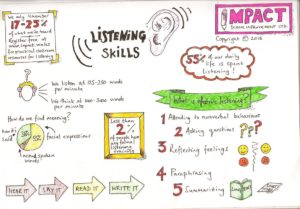
“To say that a person feels listened to means a lot more than just their ideas get heard. It’s a sign of respect. It makes people feel valued.”
— Deborah Tannen, author and professor of linguistics, Georgetown University
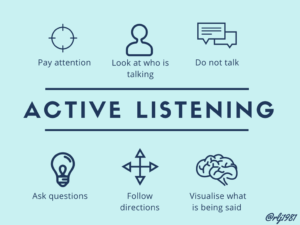
What is active listening?
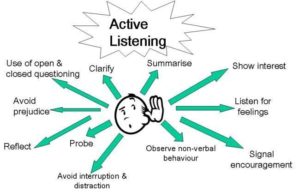
The importance of active listening in the workspace
Are you seeking a new job opportunity, striving to earn a promotion or working to improve in your current role? Then, improving your active listening skills will help you succeed. Active listening is similar to critical thinking and conflict resolution. This soft skill enables you to enhance your value as an employee.
- Building Trust:
You and your employees will become happy when you meet each other’s respective goals. As an employer, it is your organisational success. And for your employees, it is the tasks and objectives they have entrusted to complete. Therefore, it is vital to have trust in each other for healthy work experience.
Tick the following points to aware of the fact that help you build trust:
- To lend an ear to your people.
- To be honest and supportive.
- To be non-judgemental.
- To have healthy communication with them.
To tick these points, you must have a great understanding. It can get developed by active listening. It will help align your words and actions and help build trust.
- Productivity:
Active listening has endless benefits when it comes to employee productivity.
Sometimes, higher managers do not hear the views and ideas of the employees. It fuels employees’ resentment, which results in low productivity. So, you must get proper feedback and consider the opinions of the employees. It is necessary for a healthy workplace and performance. It is also inevitable to ensure that the stream of communication flows from both the direction. Then only a culture of mutual trust and understanding can get developed. It is always a two-way process.
- Resolves Conflicts:
Conflicts and mishaps are unavoidable in any workspace. The reasons for this can range from a minor error or a major disaster.
Disputes, diverse viewpoints or a lack of recognition often create conflicts in the workspace. Nothing is there a good communication cannot resolve. Here when we say ‘good communication’, we mean active listening.
We often fail to understand or respect other’s opinions as we never see things from their point of view. Our sense of self-righteousness also interferes here. Active listening helps in understanding other’s perspectives and feelings and helps us appreciate them. It not only helps in resolving conflicts but also helps foster a culture of respect.
“Most of the successful people I’ve known are the ones who do more listening than talking.”
— Bernard Baruch, American financier and presidential advisor
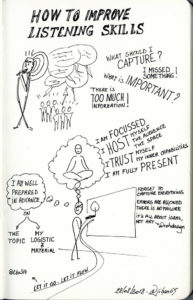
Strong Work Relationship:
It is crucial to forming healthy work relationships in the workspace for healthy work experience. There are two types of listening. They are ‘listening to understand’ and ‘listening to respond’.
People who listen to understand can form better relationships, and they are more empathetic in their approach. The same holds for work relationships. The more members in a workspace follow this approach, the better work relationships they form.
- Self-Empowerment:
Self-empowerment helps you boost your confidence and let go of your agendas. You should practice active listening and understand what is beneficial for you in the workspace. It expands your outlook in that direction and empowers yourself. You become more aware of your work atmosphere. You will communicate with your peers and colleagues with much ease and confidence.
- Acceptance:
Every firm has its own culture, and each member adds value to it. The root of this culture begins with acceptance. Yes! Acceptance of its values and mission by all its members.
For every company to succeed, both its employers and employees must be aligned with the common goal. They need to accept each other for their respective parts. They should actively listen to each other while carrying out their job duties.
At the time of onboarding new employees, management must listen to their feedback and views on various aspects of the company. It reduces confusion and gives a sense of acceptance to them. Therefore, active can be a great morale booster.
The Bottom Line
Active listening is a skill that can get acquired. And if you have arrived at this part of the blog, then we assume that you would ready to practice active listening in your workspace. We hope the tips mentioned above help you achieve that or at least educate you on the topic.
Remember! Understanding and encouraging the speaker to speak, focus, and keeping broad perspectives is the key.
“You have to be willing sometimes to listen to some remarkable bad opinions. Because if you say to someone, ‘That’s the silliest thing I’ve ever heard; get on out of here!’ — then you’ll never get anything out of that person again, and you might as well have a puppet on a string or a robot.”
— John Bryan, former CEO, Sarah Lee Corporation

How poor decision cause an adverse effect in your workplace

A poor decision can adversely affect work productivity in the workplace. A poor decision in the workplace can get reworked with meditation and calculated thoughts on a decision to be implemented.

Decision Making is one of the crucial roles every employer should play. You will have a lot of people from team advisers to individual departments within your firm. They can give you various information and advice you of your options. But even in that context, the ultimate decision will come down to you. You will be responsible for setting every major directive and making every important call when charting the course of your business. While it can be intimidating, you can grow to become more skilled at it.
Decision making is like any other skill. When you first engage, you will be inexperienced. As a result, your performance will suffer. But if you can slowly eliminate your bad habits and replace them with positive practices, you will set yourself up for much greater overall success.
Given below are some of the worst decision-making habits. If you see them growing in yourself on the poor decision in the workplace, take proactive measures to get rid of them:

Poor decision-making habit that can affect your business badly

- Not doing the research
You should do thorough research before every practical decision you make. It is from selecting the target audience of your business to hiring a new employee. The amount of effort and time you spend on research should be directly proportional to the scale of the decision. Company-altering decisions will need greater research effort than deciding where to go to lunch with a potential new client.
Still, there are numerous factors you will always want to research before landing on one side or the other. It includes the current environment, the potential costs, the potential risks, and the potential outcomes. Also, check what type of outcomes have arisen as a result of similar decisions in the past. Once you have all the data in front of you, you will be able to make a much more informed decision.
- Going on instinct
Some business owners have forged a leadership position based on charisma and intuition. They are likely becoming entrepreneurs because one day, they simply felt like doing it. They plunged in headfirst because it seemed like a good thing to do.
These types of business owners generally have a great spirit. But they don’t last long in their role as they lack grounding. Even more tactical, logical entrepreneurs suffer from the “instinct” problem sometimes. In some cases, your gut instinct can aid you to decide between two relatively comparable options, relying on logic and sound advice is. But in the long term, the better strategy.
- Waiting too long
Some entrepreneurs face difficult decisions by detaining them for as long as possible. For example, if an employer is considering firing an employee, he may postpone the decision because it’s a difficult decision. Over time, he may get more information that can make his decision easier. However, a toxic employee who gets fired three months from now rather than today will cause three months of extra damage to your firm.
It is inadvisable to make prompt decisions, but it’s even worse to procrastinate on decisions that need to be made with relative haste. In most cases, a non-ideal choice is better than no decision at all.
- Relying on others
As a business head or leader, you should be open to opinions. You should listen to your investors, your mentors, your partners, your employees, and even your family and friends when weighing your options for serious decisions. However, you should never rely on others opinions to make your own decisions.
Never find yourself asking for someone’s opinion and then coming up with a decision immediately after. It could be a clue that you are over-relying on outside advice. It is your business, and you need to make your own decisions for it.
- Avoiding pain
There are several painful decisions you’ll have to make as an entrepreneur. You’ll have to fire people. You’ll have to break partnerships. You’ll have to give up on products. You’ll have to make significant financial cuts.
New entrepreneurs often make specific decisions that avoid short-term pain. They may opt to keep circulating a product that isn’t performing well to avoid admitting to the loss. Eluding short-term pain is never a good idea. In most cases, short-term pain must be withstood to guarantee long-term outcomes.
You should not vote “Good” decisions and “bad” decisions based on their final results. Instead, the quality of a decision should get defined based on the amount of effort the decider put forth in making the decision. Under these definitions, a “bad” decision may end up with a good result, and a “good” decision ends up with a bad result. However, over time, “good” decisions will always defeat “bad” decisions. So, it pays to eliminate these bad practices and consistently follow a sound decision-making process.

How ethics and social responsibility fundamentals for business?
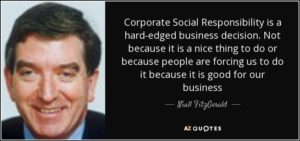
How ethics and social responsibility fundamentals for business? Social responsibility for business is imperative for business in the long run with a vision on sustainability.

Ethics is not always black and white, and the ethical decision is not always clear to all. Even leaders can fail to act all the time ethically. It will cause a greater impact on the company’s reputation. It is one of the most critical assets, which is hard to rebuild once you lost it. If you are looking to start up a company that is ethically sound right from the ground up. Creating an ethical organisation will put you on the right path.

What are business ethics and social responsibility for business?

Business Ethics is a moral guideline. It is for the efficient running of the business based on what is right, wrong and fair. Most of employers rely on their own morals in making business decisions. They fall back upon their moral and religious backgrounds for guidance. However, they also get useful advice and information from their managers and immediate colleagues.
Employers may feel pressurised to behave unethically when seeking to make profits. Over recent years many firms and industries have strived to develop codes of conduct. It can be used to guide managers when making decisions.
The importance of business ethics to a firm
Working as an ethical company has many benefits. It can attract and keep investors, employees and customers. Let your investors know that your firm’s morals and promise to work ethically and responsibly. It provides them with peace of mind that their money is being used in a way that aligns with their moral standing. When working for a company with firm business ethics, employees are satisfied. They grasp that any of their action or inaction isn’t allowing any unethical practices to continue. Customers are at ease of buying products or services from your firm. They know how to source their materials and labour ethically and responsibly.
For example, a coffee-making company states all their raw beans are picked from sustainable plants. There is no deforestation has happened. People are getting paid a good living wage. In their area, investments have been made to ensure that producing coffee for a foreign market has not injured the local way of life. All these are the elements of their buying strategy. It becomes themselves a selling point for their final product.
A firm, which sets out to work within its own ethical guidelines is less at risk of being fined for poor behaviour. They will be less likely to find themselves in breach of one of the multitudes of laws concerning required behaviour. For example, there are laws around payments to corrupt regimes, or environmental practice policies. The whole company can get fined, and the directors can get penalised. The individual employees can be fined if the responsibility for an infraction falls on their shoulders.

How business ethics can cause a bad impact to the Wider World
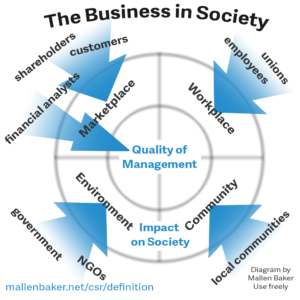
Firms that are not following business ethics or ignoring their social responsibility drives to wider outcomes. The natural world can get affected by a lack of Business Ethics. For example,
- A firm which shows no care for where it disposes its waste products.
- A business which fails to take a long term view when buying up land for development.
- Or a company neglects its duties towards reducing its carbon footprint and advance green renewable energy.
They are damaging the world in which every human being lives. They are ruining the future prospects of all companies.
So, a business philosophy should stress the need for firms to behave as good corporate citizens. Instead of just obeying the law, every firm should conduct their production and marketing activities in the right manner. They should strictly avoid causing environmental pollution or exhausting finite world resources. Some companies have begun to behave in a more socially responsible way. It may partly because their managers want to do so. Or it may partly because of fear of environmentalist and consumer pressure groups and the media. They will also concern for their public image. It is argued that socially responsible behaviour can pay off in the long run, even if it involves some short-term sacrifice of profit.
Ethical practices can go beyond just ensuring your business does not harm people and the environment. It also means dedicating a share of your firm’s time and resources to actively updating these areas. For example,
- Investing in community programs,
- Investing in building in developing countries,
- Lobbying for political change,
- Supporting your employees to donate their time and expertise to other projects.
This level of business ethics is the most praiseworthy, which is something all companies strive for these days. It allows you to achieve higher standards for all in the future.

How to resolve conflicts between employees?
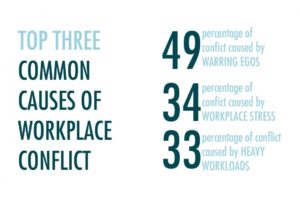
Conflicts between employees will create friction in the interpersonal relationship. Conflicts between employees will lead to a loss in productivity and the spread of negativity in the employee zone.

When you have a group of people together day after day, conflict is inevitable. The employees you so carefully screened during interviews aren’t immune, either. They might have had the right answers to behavioural questions such as, “How do you manage conflict?” Unfortunately, polished interview responses don’t secure a harmonious workplace.
Workplace conflict can occur in different ways: between two employees, among whole teams or between managers and the team members they manage. The issue might seem difficult in the first place, but resolving them is possible.
However, it’s time to resolve the conflict effectively so that you can refocus on growing your business. We know it sounds overwhelming because it seems to be outside of the business scope to deal with people fighting. But, the truth is that acquiring conflict management skills and strategies to be applied in the workplace. It is an indicator of a great business leader. When there are a large number of people from different backgrounds, disputes and quarrels will arise, and you better be prepared.
Don’t worry. We are here for you!
We have gathered tested methods and designed a course of action with simple steps to show you how to handle conflict in the workplace.
Let’s dig in.
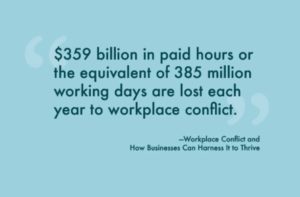
How to handle conflicts between employees?

- Embrace conflict.
When a conflict arises, don’t avoid it or pretend nothing has occurred. As time goes on, tension will mount, and the battle only will get worse. Deal with these uncomfortable matters as soon as possible, before more problems, and bad feelings become embedded in daily work.
The time you notice a conflict between team members, encourage them to find a way to work it out. In case a dispute develops between two teams, it’s an excellent time to improve interdepartmental communication. If you have a fight with one of your employee, address it head-on and in private.
- Talk together.
Set up a time and place so that you can talk for an extended span without outside interruptions.
When you meet, each person should have adequate time to say what he or she believes the other party needs to heed. Don’t let any individual monopolize the discussion or control the topic. Each person should talk only about the differences and how he or she feels about the issue.
Remember, it is not the time to attack or assign blame. So, focus on the problem, not your opinion of the other person’s character.
- Listen carefully.
It’s essential to give your undivided attention to the person who is talking. Do not interrupt the other person.
Make sure you are getting the message he or she intends to send. Rephrase and repeat back what you have heard to confirm understanding.
Ask clarifying questions if needed. You can also request the other person to repeat a central idea or reword his stress in a way that makes sense.
Listening should be about gaining understanding. Don’t permit yourself to become reactionary to the other person’s words.
- Find agreement.
Your discussion mainly will centre on the differences, but the resolution is possible only when you locate points of agreement. You need to emerge from the experience with some positives rather than all negatives.
Shed light on commonalities. Share examples of situations in which you agree with the other person or can see any other point of view. For example, if you don’t agree on new sales tactics, you might share what you liked about the other person’s idea. You can also motivate the team to work harder.
Looking for agreement exhibit your willingness to seek out common ground and build a relationship around those trust elements.
- Provide guidance.
If you are in a leadership position, there are times you may need to mediate work disputes. Don’t take sides, ever. Realize you are there to help your employees work out their problems.
You might need to guide the conversation. And if hurt feelings run high, you’ll likely need to redirect the topic, so your employees return to the real problem. If you’re in a position to advise on next steps, highlight the positive features of the process. You can also suggest them related topics or actions they can work through after the meeting.
- Be quick to forgive.
Every conflict needs a fair resolution that acknowledges hurt feelings and finds a solution that mends them.
Apologize. Tell the other person you are truly sorry for any wrong words or actions from your side. You will also need to forgive the other person. Agreeing only for the sake of appearances can lead to grudges that deepen over time, undoing any progress you’ve made together.
The truth is that, at last, we all want to be happy and productive. Another truth is that the majority of us do not want to deal with confrontation, especially at work. It is not a task to avoid, though. When handling employee conflict, remember that everybody responds better to understanding than to criticism and judgment. With that in mind, next time, your employees start fighting, just listen, understand, change, and move on. Create a culture of understanding in your firm, and you may witness productivity miracles!

How to ensure better discipline in your workplace?
Discipline in your workplace brings aims and achievement closer.
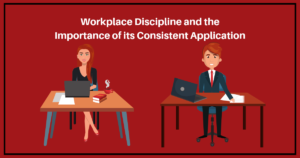
“Discipline in your workplace is choosing between what you want now and what you want most.”
— Abraham Lincoln
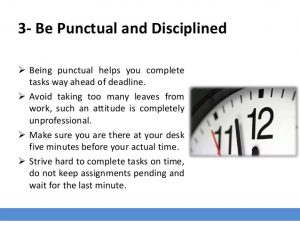
Every business needs to climb the right rung of the ladder to success. It can happen only if you develop a strong discipline and positive work ethic in your office. Creating a disciplined workplace culture or to enure discipline in your workplace is not easy always. You don’t want to become too strict or demanding. It is not a positive approach.
Here are specific ways in which you can develop better discipline in your office while maintaining the respect of employees.
“Discipline in your workplace is the bridge between goals and accomplishment.”
— Jim Rohn
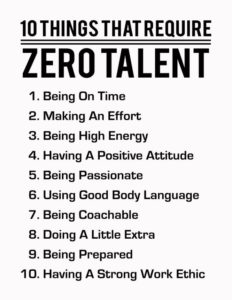
How to develop better discipline in your workplace?

- Be a good leader
Are you the head of the business? Then, it’s your responsibility to act as a leader for the rest of your workforce. Many people are afraid to serve as a leader. They think that it is better to let the employees organise themselves. But most workforces prefers to have someone who can lead them efficiently.
It is not about yelling at people and telling them what to do. It is more about encouragement and helping them to reach their full potential. You can offer guidance when people aren’t sure what the best approach should be.
A leader is a person who pulls everyone in the same direction and resolves disputes calmly.
- Remove distractions
Sometimes, ill-discipline is more to do with people not focusing on the job in hand and instead of being distracted. You should remove all those things from the office that can be a distraction for your people.
These potential distractions could be to do with how the workspace is organised. Or it could be to do with the technology that they are using. It is a good idea to block social media sites in the office because these can act as major distractions for employees.
When people are too busy on their social media sites, they don’t do the tasks that you want them to do. Banning sites might seem harsh in the first place. But it might be necessary.
- Make a pleasant working place
Another thing you can do is improving your workspace. The office should not be a place where people hate being each day. Your employees should walk into the workspace looking forward to what the day has to offer them.
If they are walking in and feeling like they would rather be somewhere else, then you will find it hard to develop a disciplined and productive office space. So, brighten up the office and change how it operates.
You should make it more collaborative so that working for the business is a bit more fun than it was before. It is a relatively small change, but it could make the office a much nicer place to be for your employees.
- Think about the age of the workforce
It is something that many employers don’t even think about. But having a young team means you have to approach the problem differently than the workforce with older ones. You need to tailor your plan to your employees depending on what they respond best to.
Think about their age and personalities. Then, personalise your approach to office discipline. Most people respond better to gentle encouragement and a relaxed approach. And others need a firmer approach to behave in a way that is appropriate for your office. A uniform approach to discipline isn’t always the best option to go for.
“Without self-discipline, success is impossible, period.”
— Lou Holtz
- Make the rules clear
If you want your workforce to follow the rules, they should know exactly what those rules are. You can’t expect your people to follow the rules if you haven’t mentioned to them what they are. So, you should decide what the rules are, to begin with. It is not something that you need to spend too long doing. You should have fewer precise rules. It is much better than having a million rules that no one is going to bother to read.
The rules of your company should ideally fit on one side of the paper. If you are easily accessible to commercial laminating machines, you can print and produce a few copies of the rules. You can exhibit it in the office so everyone can see them.
- Put a three-strikes rule in place
You must have some real consequences for people who deny playing by the rules inside the office.
It makes no sense to follow the rules in place if nothing happens when someone breaks those rules, does it? The best thing to do is to put a three-strike rule in place. It would mean that an employee would be given some warnings before they finally get fired for poor discipline.
Having this kind of procedure will make it clear to everyone what their limits are. People will think twice before doing things that disrupt if they know that there will be consequences of their actions.
- Give people space to work
As an employer, you don’t want to be breathing down the neck of your people all day long. If they feel like they are under pressure to do something, they will be much less likely to do it well. That’s why it is so important to give your people the space they need to work in their own way.
No two people are the same. And they should get the space to build an approach to their task that they are comfortable with. If you aspire to get the most out of employees, you should allow them this kind of independence.
- Prioritise communication with employees
You can create a disciplined office only if you are prepared to keep the lines of communication with your employees open. Employees should feel like they can communicate with you and air their worries as they arise.
This type of communicative culture is a very healthy thing to have. So, never underrate how important it can be. It can turn out to be one of the most powerful things about your entire business. But first of all, you need to make it very clear to everyone that you are willing to listen to them whenever they have something important to share.
“One of the most important keys to success is having the discipline to do what you know you should do, even when you don’t feel like doing it.”
— Unknown

Job interviews during the deadly coronavirus pandemic

Job interviews during the deadly coronavirus epidemic. A remote Job interview during coronavirus pandemic is the best option for overall safety for all involved.
The victims of the novel coronavirus pandemic are increasing after each passing day. It leads most companies around the world, asking their employees working from home. It avoids the commute to the office and the victim’s interaction with other employees, which slow the spread. As a result, recruiters and managers are getting forced to move their hiring processes online. Job interviews during the deadly coronavirus pandemic are mostly remote.
The most immediate change will likely be companies switching in-person interviews to online interviews through video calls. While the core of those interviews is ultimately the same, video interviews differ from in-person meetings. You may have a lot of questions in your mind, including:
- What are the best practices for video interviews?
- What job may seekers encounter over the next few weeks?

Let us dive into the blog to know more about Job interviews on a coronavirus pandemic.

- What you should expect
Companies are always proud when they can fill positions quickly. They may be less bothered about that measure during the coronavirus pandemic, though. In other words, firms may take longer to make you an offer, especially for senior-level positions.
It would be shocking if someone made an offer to a senior candidate without meeting the person. But in this situation, we got no other options than getting the person through several interviews rounds until they can meet the person. Another issue is that it’s likely more challenging to get all the key stakeholders to weigh in on a candidate to make a decision.
If everyone is going out of the office, working remotely and not meeting regularly may be arduous to get everyone on the same page.
While nobody wants to take part in lengthy hiring processes, you need to remember that we are currently dealing with unprecedented circumstances. If you want to land a job, you will need to continue engaging with these processes, no matter how long it takes to get considered for roles.
- Do a thorough research
Fortunately, the first move in preparing for video interviews is not associated with what you did before the beginning of the epidemic. The key is to do as much homework and research ahead of an interview as possible.
During your research, it’s essential to find potential topics of conversation with interviewer or interviewers. Video interviews tend to involve less small talk and be shorter than in-person meetings. So, it is even more vital that you make an effort to form a bond with the recruiter on the other side of the screen. For example, you can look for things to talk about on the interviewer’s LinkedIn profile. Or, you can mention anything they said on a podcast or anywhere else.
- Prepare your space and practice
Unlike in-person interviews, video interview often opens a window into your personal life. As a human, we make decisions about what people’s spaces or homes look like. You shouldn’t let hiring managers see a messy surrounding piled up with mountains of waste papers or crooked picture frames.
Instead of it, opt for a neutral background with good lighting. Also, ensure the camera is at eye level to avoid any unflattering angles.
One of the benefits to video interviews is that you can have notes in front of you or around your workplace. The person doesn’t have to know about that. Moreover, if you have dual monitors, you can keep one for the interview and the other one for your notes.
For you don’t have a proper space or a laptop with a built-in camera, local libraries can often be a one-stop-shop for your job hunt. They may even have a peaceful space for you to sit with your laptop for the interview. Alternatively, you can ask any local co-working spaces if they have a room and equipment to rent.
Lastly, you will want to practice talking to the camera, which is more complicated than it seems. You can put a pair of googly eyes right near the camera lens. It encourages you to look at the camera during the interview session. Never look down, off to the side or elsewhere. You have to ensure you have good eye contact.
- During the interview
While many of the in-person or video job interview questions will be the same, you should ask for specific information about the firms hiring timeline. You should also ask if the position will be remote until the outbreak is over and how the firm will proceed with the onboarding process if they continue to work remotely for a month or two.
It’s also crucial during a video interview to tell the recruiter how interested you are in the opportunity. You should thank him for their time to interview you. Tell them how impressed you are with the team and say how honoured you are to get considered for the position. Never leave any doubt in his mind that you want to be there.
Additionally, you should expect the unexpected during these next few weeks while people are working from home. While everyone will want to continue with their professional tasks, life can sometimes get in the way when children, pets or even the doorbell intrude on a video interview. The best thing you can do is showing grace and hope they will return the favour.
The Bottom line
The coronavirus is shaking up how recruiters operate. The recruiters and companies are moving job interviews to video. In some ways, the switch has made their jobs easier since many of their clients are working from home. Instead of waiting to hear back from people who may be at meetings or walking around the office, the clients are at home and available to talk when needed. The downside is that a face-to-face meeting is still needed to secure larger positions, meaning recruiters may need to wait to cash in on fees until the outbreak is over.

Here are the brilliant tips for dealing with a demanding boss

Here are the brilliant tips for dealing with a demanding boss. Ways and means to deal with a demanding boss in the workplace.

Who else wants to learn about the brilliant tips for dealing with a difficult or demanding boss? It is rare to have a perfectly ideal manager. Certain characteristics may indicate you are dealing with a truly toxic boss. If you see any traits in your boss, your the response from you may be to ignore it. But you can grapple with a deadly situation for so long before it starts to harm your well-being.
Although bad bosses can impact you negatively, they are not inherently stressful. Instead, your internal response to him or her is what dictates how you feel. You should survive and even thrive in a toxic state by reframing the situation. View the elevated stress and pressure as an opportunity for growth.
Here are five ways of coping with a toxic boss can affect your mental and physical health and how to overcome them.
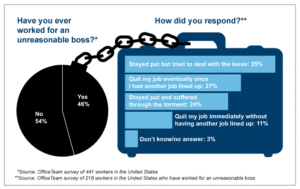
How to overcome the mental and physical health issues a demanding boss gives you?
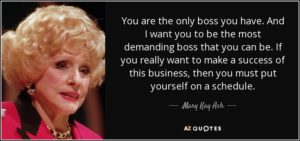
- Fear and anxiety
A toxic boss introduces dread and worries into your life and the office. They may instil the fear of being singled out or targeted, the fear of being ridiculed by colleagues or the fear that your career will be ruined.
Working in a continuous state of fear is hugely damaging. It may leave you feeling incapacitated. Studies show that anxiety can impair your decision-making. It breeds uncertainty and leaves you vulnerable to making impulsive reactions.
Solution: There are many ways to tackle fear. If you are scared of failing in your career, identify the things you can control. It will let you stop focusing on the life happenings you don’t have any control over.
- Mental fatigue
Chronic exposure to a poisonous boss has a profound influence on well-being. Your efforts to get by from day to day are downright exhausting.
This daily stress and pressure can lead to mental fatigue. It impairs your cognitive performance and lessens your motivation to get things done. Mental stress or fatigue also makes it harder to focus on tasks at hand. It results in decreased productivity and works efficiency.
Solution: For overcoming mental fatigue, you should stay calm. To get to this state, you should do things that make you feel positive. Detach from work when you are not working and remember the big picture.
- Boredom
Life with a toxic boss can make you feel stagnant, especially if he is passing you over for promotions or piling mundane tasks on your desk.
That boredom can quickly drain your willpower and motivation. It can also diminish self-care and resilience. In fact, boredom can make you less focused at work and decreases your level of engagement. It can also lead to career-sabotage. Bored employees are more susceptible to abusing their colleagues and purposely failing at tasks.
Solution: Rather than viewing boredom as a hindrance, use it to spark your next innovative idea. When you are bored, your brain goes into a default mode. It allows to connect ideas, set goals and figure out what steps we need to take to reach them.
- Sleep
Proper rest is necessary for your well-being. It plays a significant role in defining your success level. Dealing with a toxic boss can hugely disrupt your ability to enjoy restorative sleep. So, poor sleep quickly and ruthlessly saps our ability to be your best self and to respond to the toxicity more effectively.
Your clarity, perspective and judgement suffer when you don’t get enough shut-eye. Also, sleep deprivation can limit your capability to respond to complex challenges within a firm.
Solution: When your work is keeping you up late at night, try these sleep expert-approved hacks. It will help you doze off. Read a book or colour, schedule 10 minutes of “worry time” earlier in the day or practise yoga before bed.
- Loneliness
Humans are social creatures by nature. We need some baseline community and contact to live and perform at our peak.
But you may find yourself shut out by colleagues quickly. They will fear that a connection to you will result in the same treatment from the boss. It can lead to feelings of loneliness. It can accelerate cognitive decline, poor sleep patterns and increased levels of stress hormones.
Solution: Cultivating workspace relationships is a crucial factor in career growth and promotion. So, practice humility and gratitude to form lasting professional bonds with your co-workers. Become an active listener and observer and plan an informal meet-n-greet.


How to deal with backstabbing colleagues
How to deal with backstabbing colleagues. Backstabbing colleagues are there everywhere in the workplace. Ways and means to deal with a toxic colleague who is backstabbing.

The co-worker takes the credit for your work. The manager forgot to invite you to a meeting — but blames you. The office gossip lets it slip that you came to work hangover.

Sound familiar? Then the chances are you are dealing with an office backstabber.
Holding onto a job right now is very tough. Mix in a backstabbing colleague, and it could get even tougher.
Making friends in the office is a great idea, as long as they are people you can trust and respect. When you can’t get along or have an uneasy feeling about a co-worker or a group of them, it can make an already busy schedule more stressful.
What can you do if you feel an office backstabber is hurting you or others? How can you identify the office snake?
- They will be the one who is seeking to undermine and sabotage you, your reputation and your career at every turn.
- He will be the one who is spreading rumours about you.
- She or he will be the one putting you down to your boss behind your back.
- They will be the one stealing credit for your ideas
How can you deal with the situation before it gets out of control? Here is how to stop the damage without becoming a part of the problem.

How to stop backstabbing colleagues before the situation gets out of control?

- Keep yourself cool
You may want to hit back once you have been bombed with backstabbing, but this reaction may produce an unwanted cycle of events. Backstabbers aren’t going just to let retaliation go. While it is tempting to get back at that person, resist the urge to engage in their games.
- Call out bad behaviour without being confrontational or defensive
You may feel the instinct to avoid the person and create a safe distance. Even though our gut instinct to stay away from them, that usually doesn’t work. So, ask the backstabber to validate their behaviour. Be objective and say you have observed particular action, such as cutting you off during meetings and ask why.
- Write it all down
Don’t just run to your boss with your woes and start babbling. Have concrete, written proof that a colleague is being dishonest or trying to paint you in a negative light. While you may feel difficult to wait as you gather information, you will be far more effective when you present your case to the employer.
- Keep your reliable friends close to you and your enemies closer
It may sound counterintuitive, but an increased interaction with the peer is more helpful than less. The goal is to see if you can deescalate the tension so that you won’t end up wanting to bring in the big guns. By extending an olive branch, you may be able to solve problems on your own.
Getting to know a person will help you to build a bridge and convert the relationship. It is a lot harder to backstab someone you know about and like than a stranger.
- Enlist backup
You are not likely the only person that the backstabber has hurt. So, understand who you can trust and ask them to back you up. Workspace allies can also help you build your case to present to the management. So, consider meeting with trusted colleagues and coming up with a strategy to explain why and how the office troublemaker needs to get stopped.
Most importantly, never sink yourself to the level of the problem making person. And don’t lie or exaggerate about the issues, alone or as a group. Remember that the backstabber, however terrible, is a human. Neutralizing disputes is most successful if you can hang on to your empathy and honesty along the way.

End of content
No more pages to load




